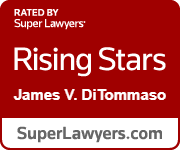Defending Your Rights
First Amendment Considerations
Defamation happens when a person or entity makes false statements about another person, either orally or in writing. A defamation lawsuit seeks to compensate the plaintiff for harm done to its reputation as a result of the defamatory statements. Since defamation involves speech, the First Amendment’s right to free speech is naturally implicated. Over the years courts have struggled to find a balance between the freedom of speech and the freedom not to have one’s reputation falsely maligned.
Generally speaking, that middle ground recognizes that libel law “reflects no more than our basic concept of the essential dignity and worth of every human being”, according to Justice Potter Stewart of the U.S. Supreme Court. Courts must be careful to balance the needs of individuals seeking to protect their reputations with the need to ensure “breathing space” for the freedoms provided by the First Amendment.
Prior to 1964, courts generally tended to favor plaintiffs in defamation lawsuits. Frequently, the Supreme Court treated defamation the same way it treated obscenity and fighting words – both of which are forms of expression which are not afforded protection under the First Amendment.
For many years, the Supreme Court gave little more than lip service to the First Amendment in its defamation opinions. The first case to really examine the scope of its protection in the context of defamation was New York Times Co. v. Sullivan, 376 U.S. 254 (1964). In 1964, L.B. Sullivan, a city commissioner in charge of the police department in Montgomery, Alabama, filed a defamation lawsuit against the New York Times for publishing material about him and his police department which were factually incorrect. A jury awarded Sullivan $500,000 and Alabama appellate courts upheld that ruling. The New York Times continued to appeal the case until it reached the U.S. Supreme Court, which reversed the ruling. In its decision, the Supreme Court noted that the “law applied by the Alabama courts is constitutionally deficient for failure to provide the safeguards for freedom of speech and of the press that are required by the First and Fourteenth Amendments in a libel action brought by a public official against critics of his official conduct.”
This landmark case paved the way for courts to consider the rights provided under the First Amendment when ruling in defamation lawsuits, particularly when the plaintiff is a public figure. In its decision, the Court stated “Thus, we consider this case against the backdrop of a profound national commitment to the principle that debate on public issues should be uninhibited, robust, and wide-open, and that it may well include vehement, caustic, and sometimes unpleasantly sharp attacks on government and public officials.”
As far as allowing the defamation to remain unpunished, despite the factual errors, the Court reasoned that “erroneous statement is inevitable in free debate” and that punishing critics of public officials for factual errors might lead to an unwanted suppression of free speech in the media. The Court followed this up by stating that the guarantees provided by the First Amendment of the U.S. Constitution “require, we think, a federal rule that prohibits a public official from recovering damages for a defamatory falsehood relating to his official conduct unless he proves that the statement was made with ‘actual malice’ – that is, with knowledge that it was false or with reckless disregard for whether it was false or not.”
Since Sullivan, the First Amendment has been a staple in defending against defamation claims. First Amendment jurisprudence has evolved and is ever-evolving even now. A skilled defamation defense attorney must have an in-depth knowledge of First Amendment law, past and present, in order to present an effective First Amendment defense.
The attorneys at Nationwide Consumer Rights have decades of experience in First Amendment law and defamation defense. We are committed to protecting the rights of free speech and defending our clients against lawsuits which may jeopardize these rights. Conveniently located in Oakbrook Terrace and Chicago, Illinois, we have successfully litigated cases for clients all over the Chicago area. To schedule a consultation with one of our skilled attorneys, you can contact us online or give us a call at 630-333-0000.








